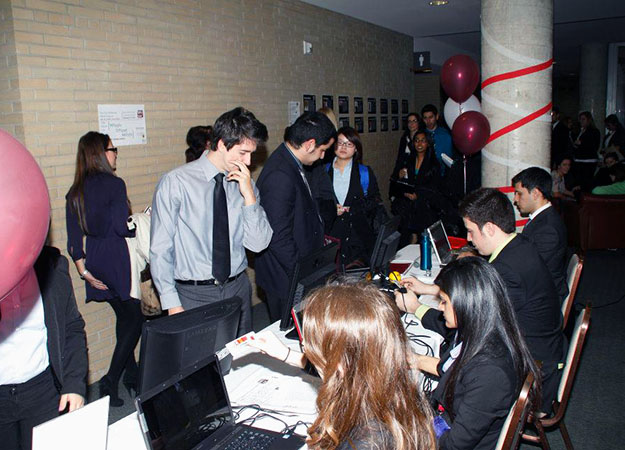World Congress tackles emerging business issues

This year's McMaster World Congress is expected to attract 4,000 students and members of the community for a two-day affair in CIBC Hall. The two central themes are the triple bottom line, and sports management.
The CEO of the Canadian Olympic Committee; a senior leader at retail giant Walmart; the vice-president of marketing at Honda; an analyst from TSN – these are not people who show up in a university classroom every day.
But this week at McMaster, students will hear from all of them at the 34th annual McMaster World Congress.
The Congress is one of the University’s largest student-run events – attracting more than 4,000 young minds from across McMaster, as well as members of the local community. The event runs Feb. 5 to 6 in CIBC Hall.
“As a student, I value the level of insight industry professionals provide during the McMaster World Congress. It is rare to have the level of access to actually ask questions of professionals and receive guidance for my career development,” says fourth year DeGroote student John Moolasseril. He’s attended the Congress each year since beginning his degree at the University. “Listening to personal stories of various speakers has opened my eyes to different industries and emerging business trends.”
This year’s Congress has two themes: the triple bottom line, and sports management.
In the triple bottom line stream, presenters will explore issues such as ethical business practices, corporate responsibility/global development and how social, ecological and economic concerns integrate to define the true profit margin of a company.
The sports management stream builds on McMaster’s strong athletic history, and highlights the application of leadership and a dedicated work ethic to business.
For Moolasseril, the event’s success can be explained by its themes, which focus on emerging business issues that are of interest to students. It also provides the opportunity for students to interact with high profile business leaders.
“The student body has a strong level of enthusiasm in establishing our careers, but we do not necessarily know where to start,” he explains. “We want to apply the skills we learn at university in the workforce. We want to find more accessible ways of networking with industry insiders from either social media or more direct communication. The World Congress gives us the inside track on emerging business trends and access to industry professionals. It’s like a head start for students.”


